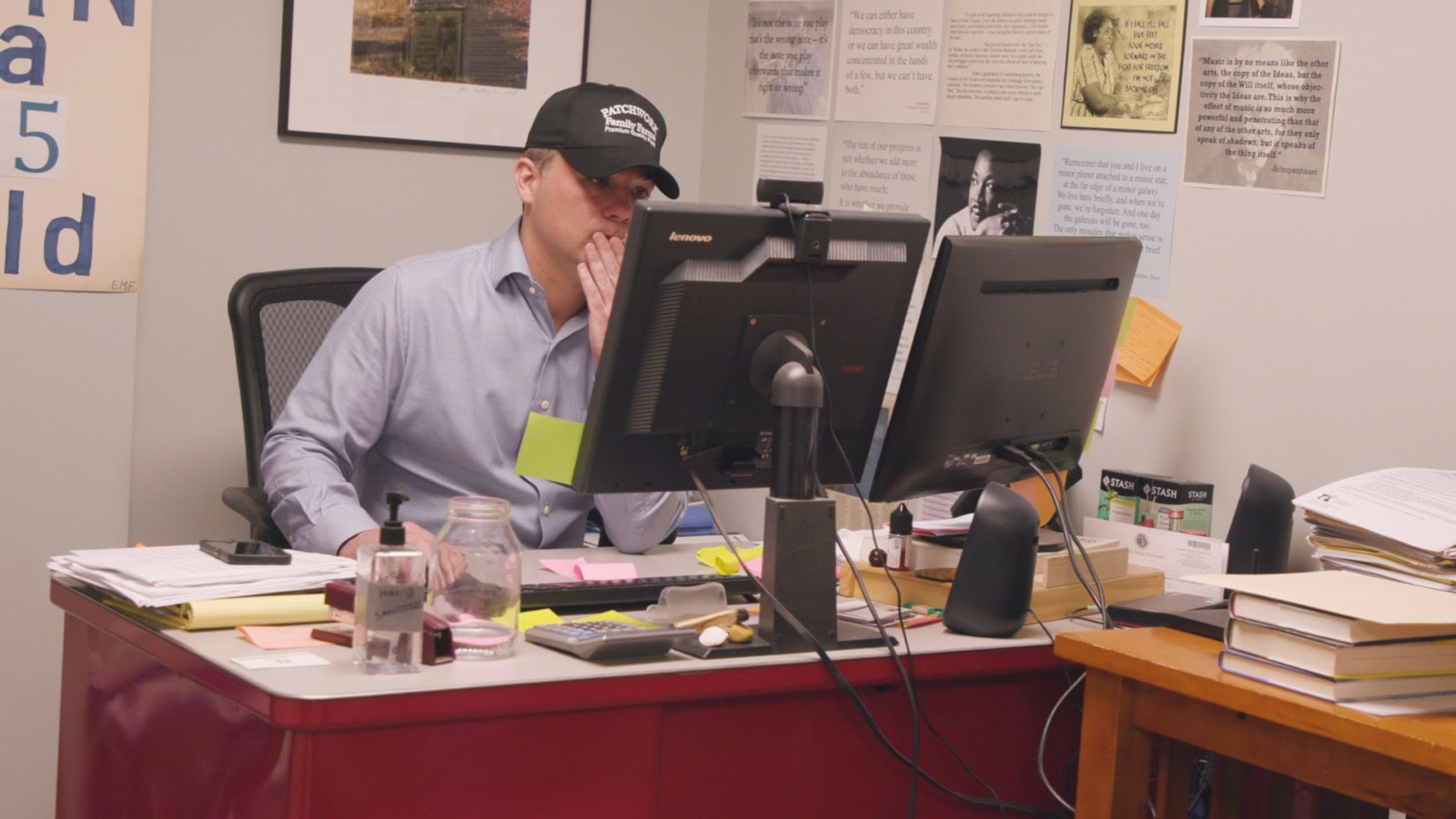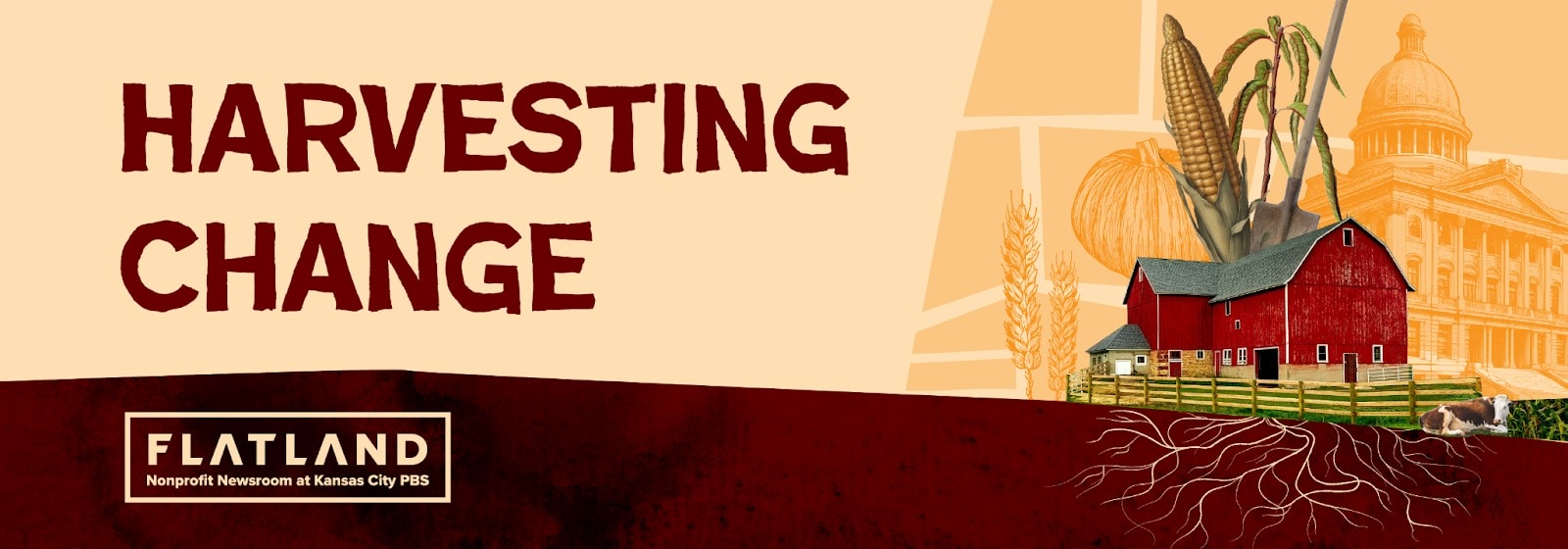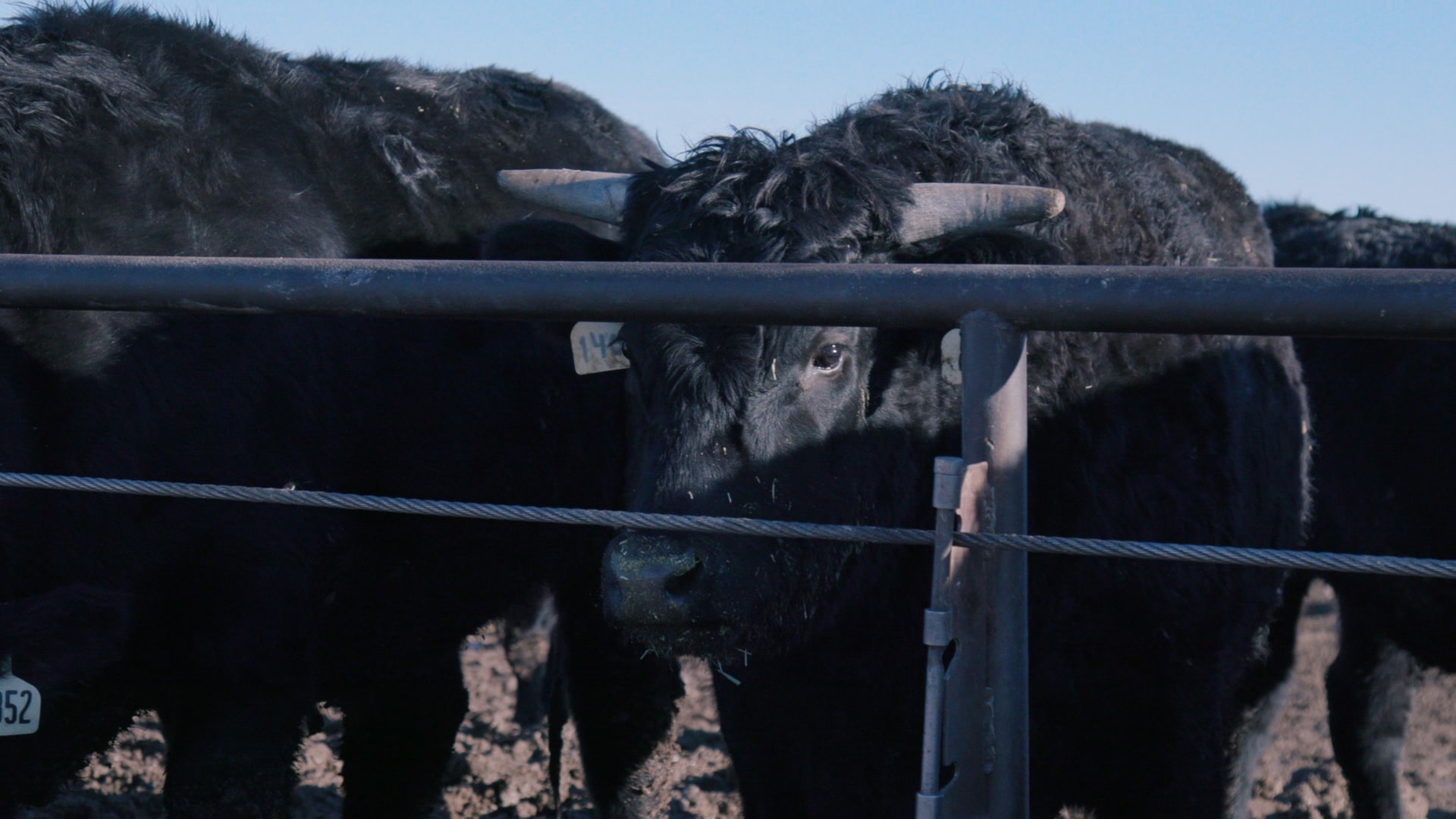Harvesting Change | Advocating for Family Farms ‘Pork with a Fight Back Message’
Published February 29th, 2024 at 6:00 AM
Above image credit: Jeff Jones is a rancher who organized with Missouri Rural Crisis Center to fight a large hog operation that went in close to his home. (Cami Koons | Flatland)COLUMBIA, Missouri — At the first ever Farm Aid concert in 1985, a group of Missouri advocates for family farms was awarded $10,000.
The contribution marked the birth of the Missouri Rural Crisis Center (MRCC). These Missouri farmers gathered during the farm crisis in the 1980s and found a shared purpose as the industrialization of the pork industry pushed small hog producers out of the game in the 1990s.
Forty years later, MRCC supporters still attend Farm Aid. They sport red t-shirts emblazoned with “Stop Factory Farms” and serve pork raised on family farms in Missouri via Patchwork Family Farms, an affiliate of MRCC.
Patchwork offers local producers a place to sell their hogs without having to compete with the big meat packers. It provides vital links in the local food chain, relieving folks who just want to farm from the stress of processing, packaging and marketing. It also sources local restaurants with a reliable distributor.
“We just knew we needed to take action,” said Rhonda Perry, MRCC’s executive director, about forming Patchwork in the 1990s. “Hog farmers, along with consumers, in our organization really cared about making sure we were saving the hog industry and animal husbandry practices and the creation of good food.”
Watch Harvesting Change on YouTube
MRCC pushes for policies to make the commodity markets more competitive for the little guys, and to prevent the cattle industry from following in the footsteps of the hog industry.
“We don’t want to be right about this,” said Tim Gibbons with MRCC. “But we were right in the ‘90s.”
MRCC supports legislative policies to enforce country-of-origin labeling, to stop the foreign ownership of farmland and to advocate for local control, all with the goal of keeping resources and wealth in local communities.
“The corporate capture of (agriculture and livestock) really impacts rural families and family farmers, putting family farmers out of business,” Gibbons said. “The ripple effect of that over time into our communities has been devastating.”

MRCC tries to support rural communities, rather than extract local resources and wealth. When Gibbons is on the road and talking to people of different demographics across the state, he finds that most Missourians agree with these values.
The Show-Me State, Gibbons has found, agrees with “the value of local economic development, the value of local control, the value of being good neighbors, of looking out for each other and understanding that we’re all in this together.”
In addition to organizing and supporting its members, MRCC runs a low-cost food cooperative and youth programming around local food.
“What we are working on at MRCC is really bringing people together (and) creating non-partisan power that’s based on our shared values,” Gibbons said.
This is the second installment in a monthly video series, “Harvesting Change,” which highlights producers in this region who are working to support local food chains, and the impact this work has on sustainability.
The first episode of Harvesting Change featured a rancher who built his own direct-to-consumer market.
Cami Koons covers rural affairs for Kansas City PBS in cooperation with Report for America. The work of our Report for America corps members is made possible, in part, through the generous support of the Ewing Marion Kauffman Foundation.




